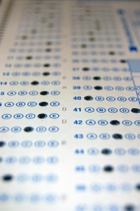 Over the past couple of decades education publishing has been characterized by waves of consolidation into a handful of giant conglomerates. This is a typical pattern in an industry as products commoditize.
Over the past couple of decades education publishing has been characterized by waves of consolidation into a handful of giant conglomerates. This is a typical pattern in an industry as products commoditize.
If products are effectively interchangeable (commodities) competitors gain competitive advantage through industrial scale cost management (economies of scale). Bigger warehouses, off-shoring production, distribution networks built on fleets of professional salespeople, and access to capital drove smaller players into the arms of Pearson, McGraw-Hill, Houghton Mifflin (Harcourt), and Scholastic.
We can see that they became huge – but what were the market forces that drove them to do this?
 The Education Business Blog
The Education Business Blog


 50% of the men did not wear neck ties at this year’s
50% of the men did not wear neck ties at this year’s 
 New York, Texas, California, and Florida have opted out of No Child Left Behind (NCLB) and will be abandoning all high stakes testing. It is unclear at this time if other states will follow, although indications from across the political spectrum are clear there is strong interest.
New York, Texas, California, and Florida have opted out of No Child Left Behind (NCLB) and will be abandoning all high stakes testing. It is unclear at this time if other states will follow, although indications from across the political spectrum are clear there is strong interest.